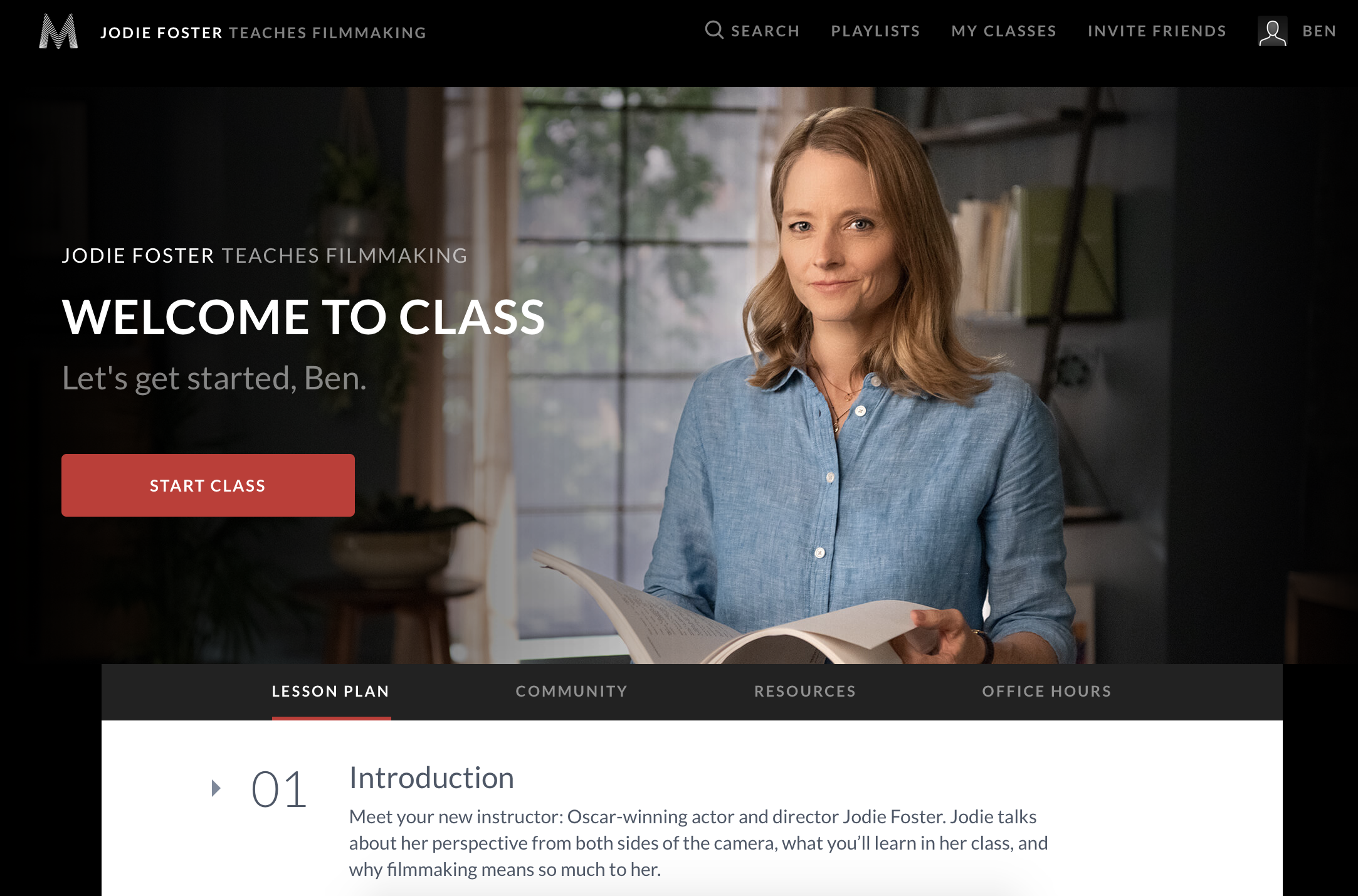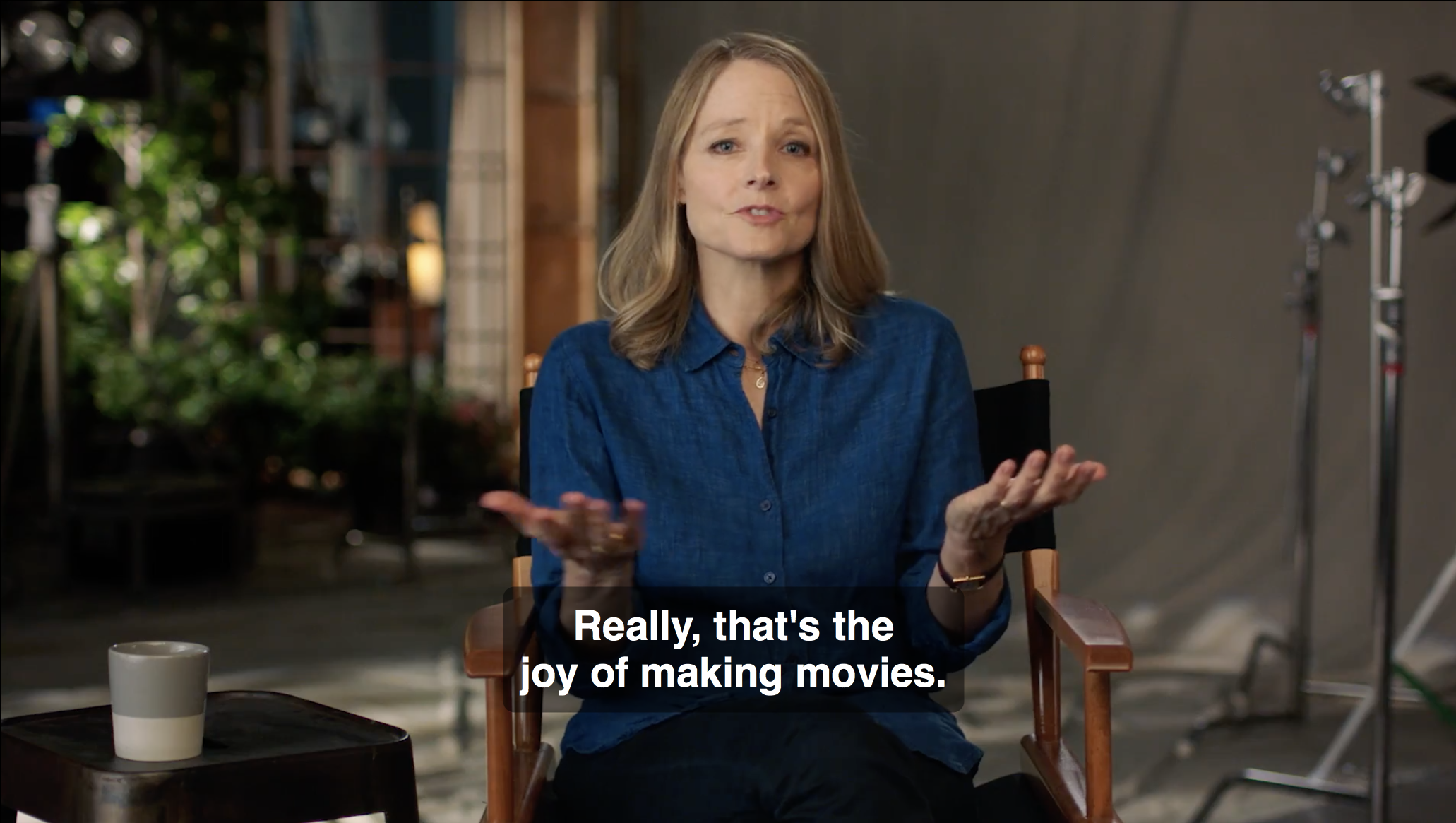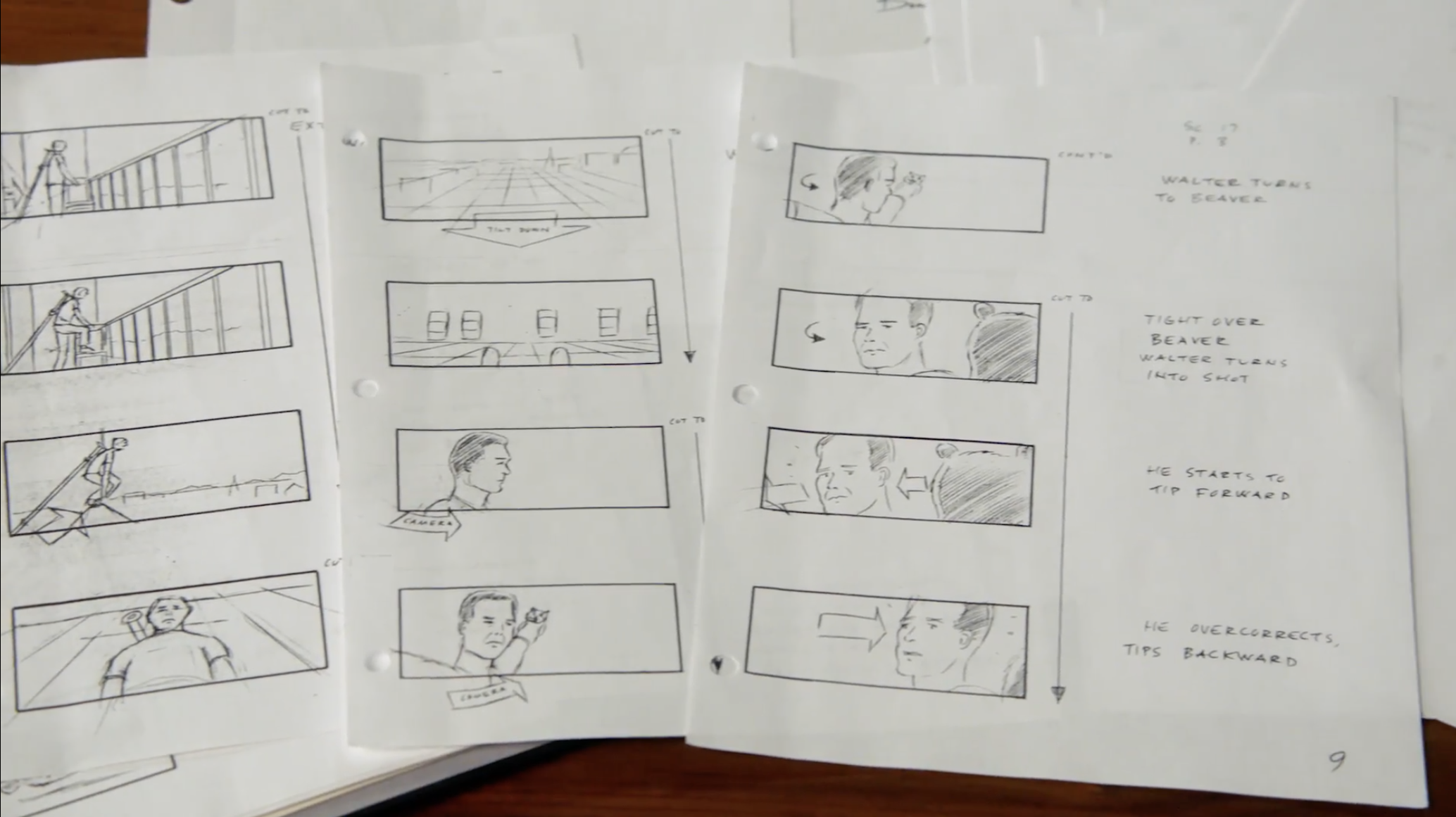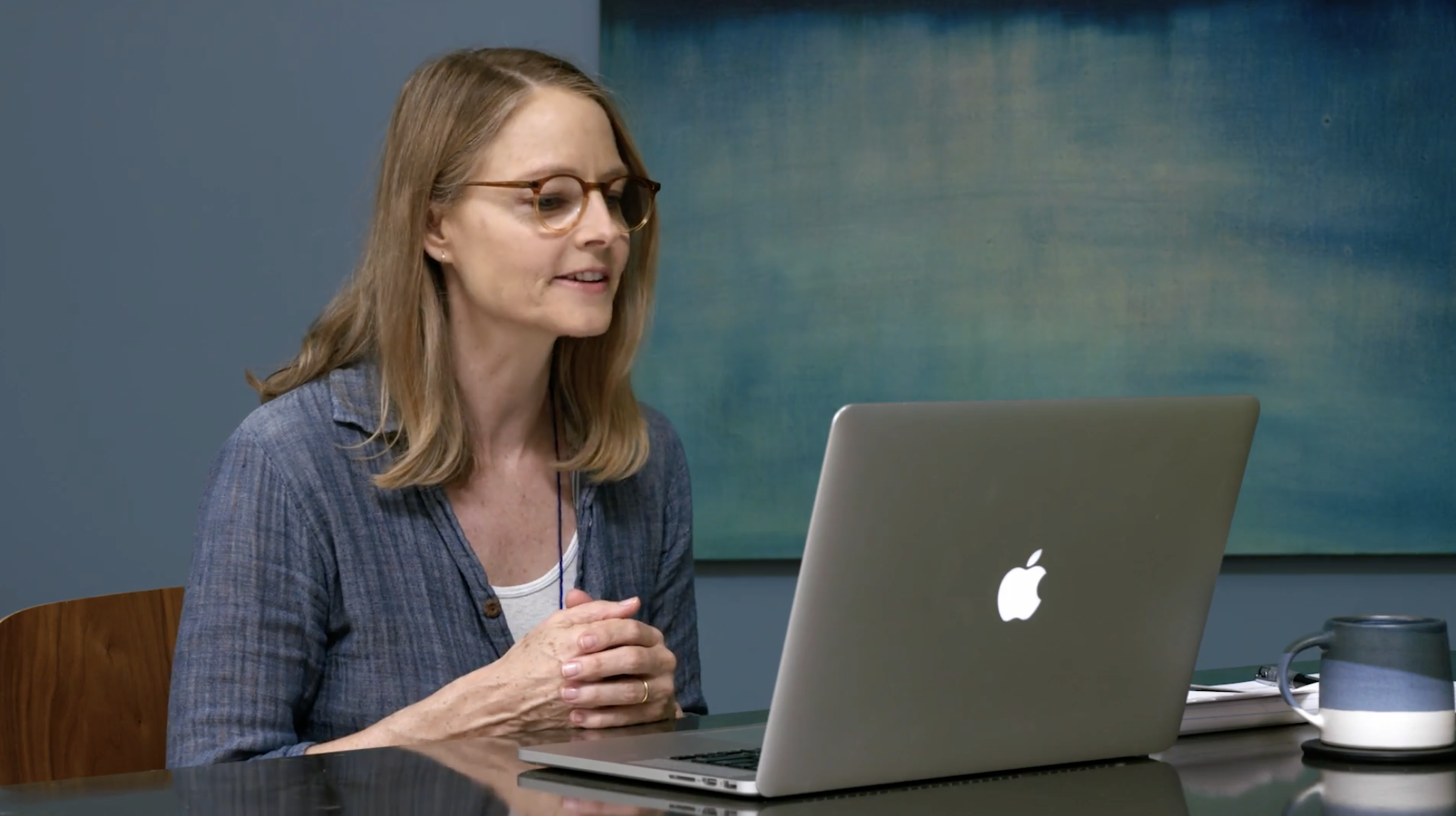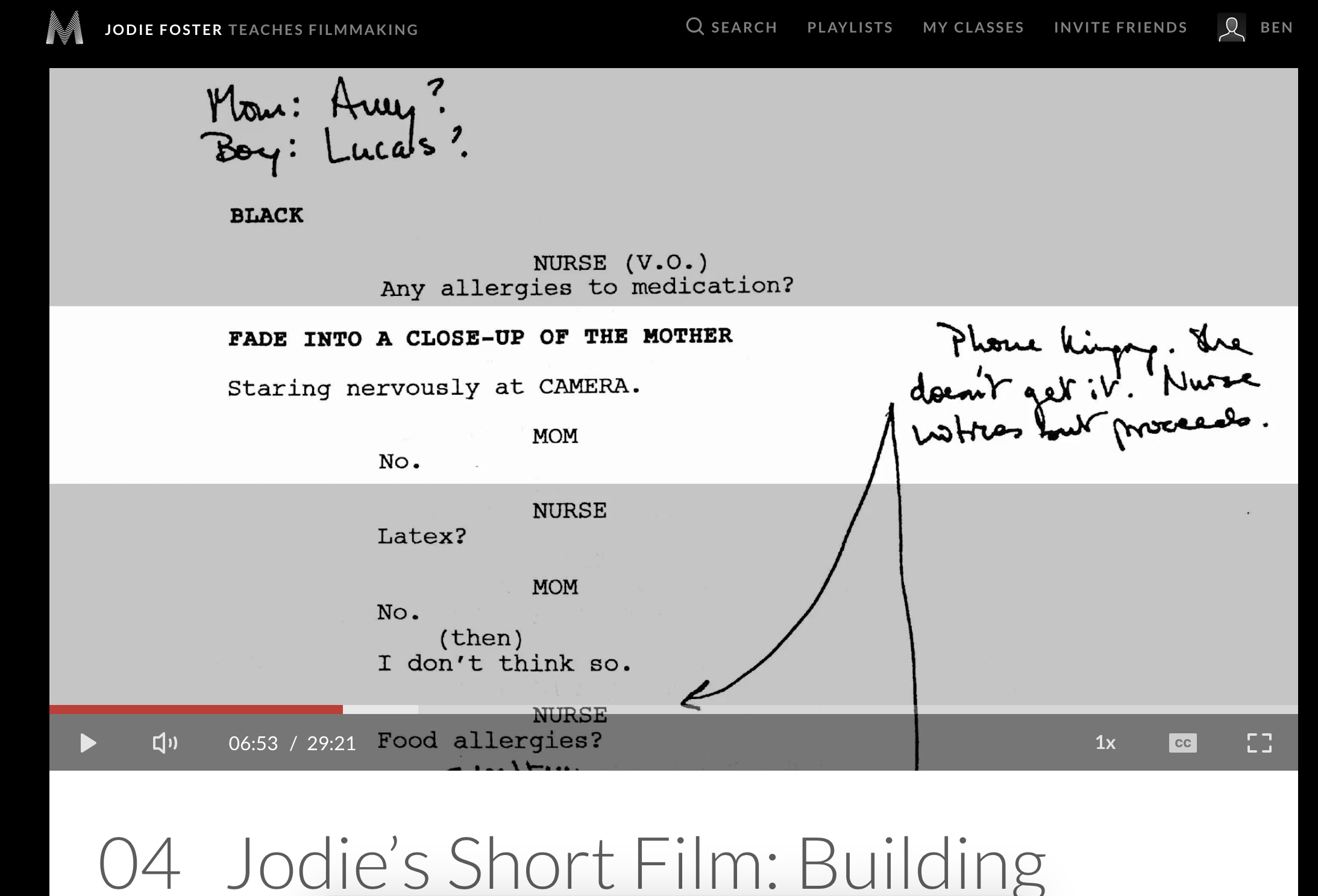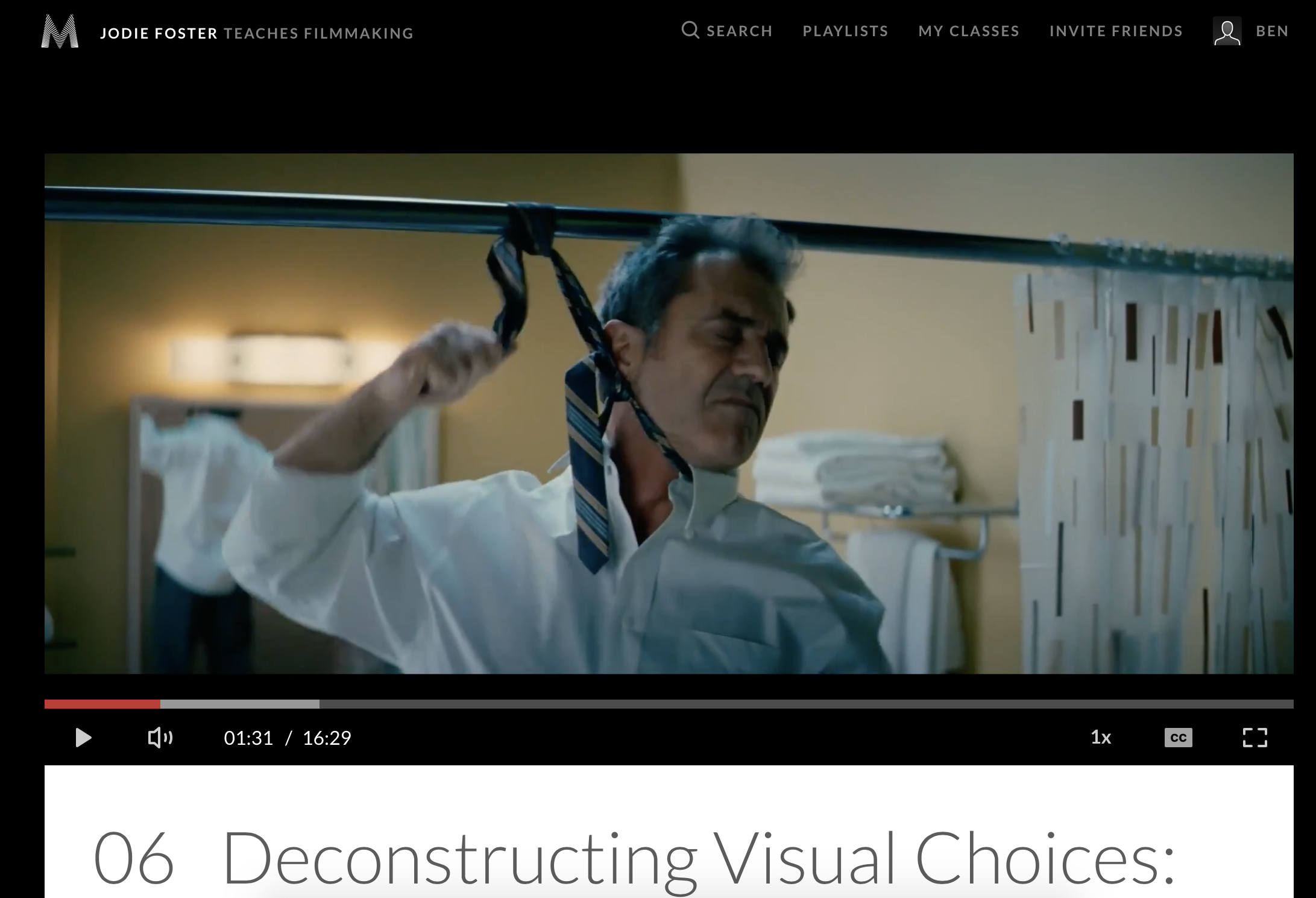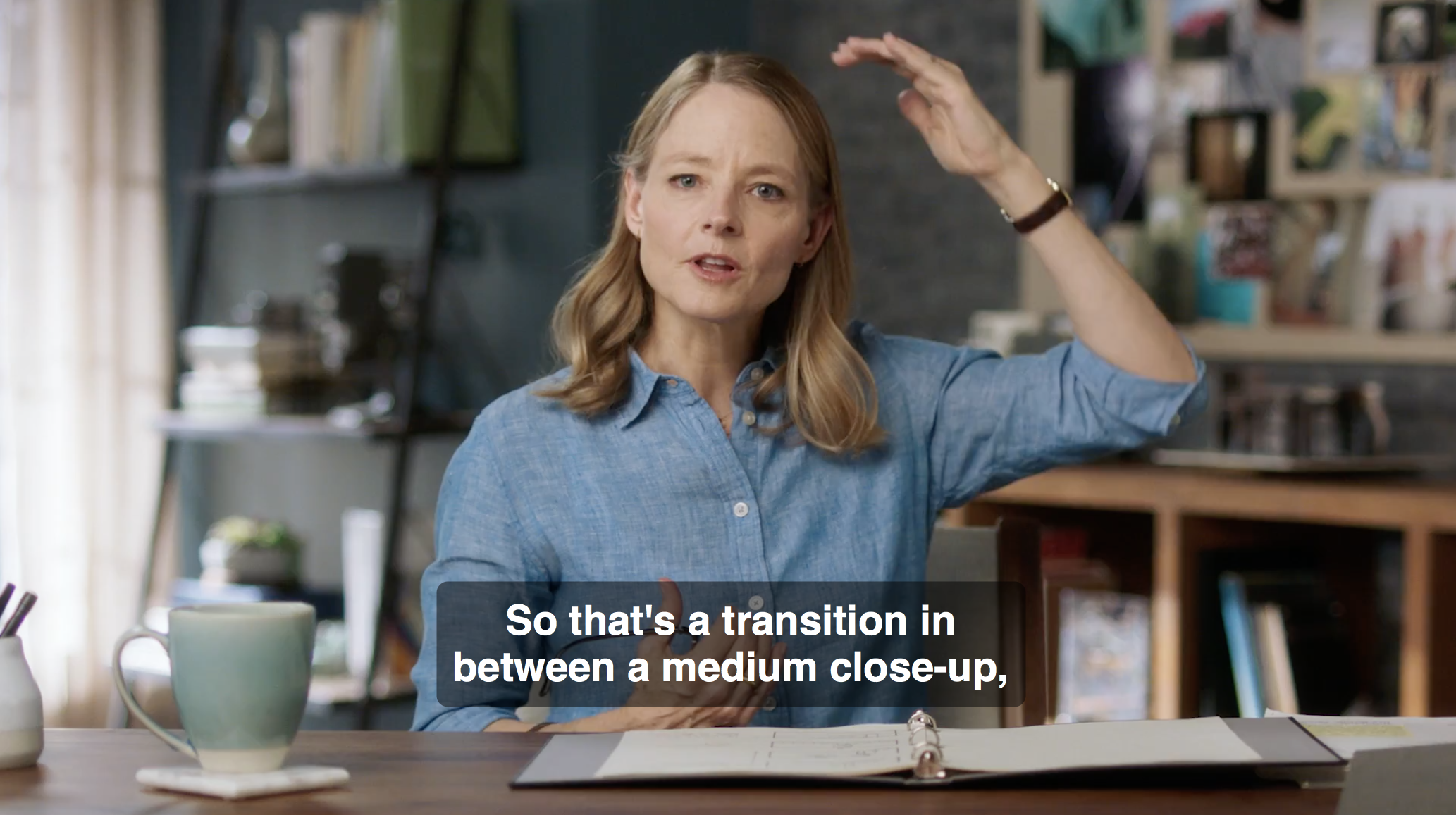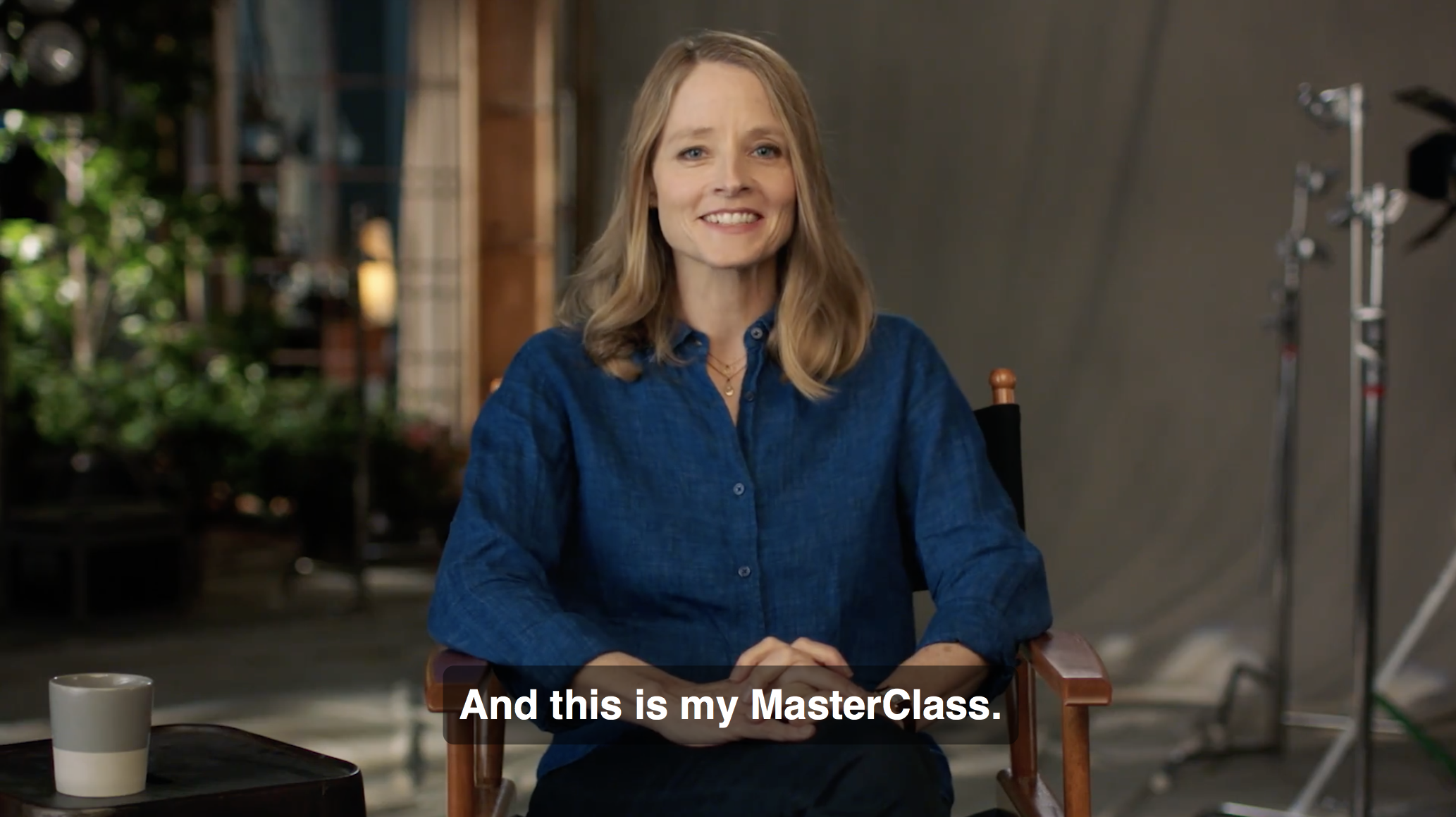MasterClass doesn’t surprise me anymore. Obviously I’m pleasantly surprised whenever one of my writing or filmmaking heroes turns up as a Masterclass instructor. But I’ve stopped being surprised that the company is able to snag so many huge names.
MasterClass is an institution now. It’s an online university unlike any other and it deserves all the respect it gets. The All Access Membership Pass the perfect filmmaking, writing, cooking suite anywhere on the internet. And now the company has just released Jodie Foster Teaches Filmmaking.
I’ve already been immensely impressed with the Werner Herzog, Martin Scorsese, Spike Lee, and Mira Nair filmmaking masterclasses. So of course I wasted no time diving into this one too!
What you get in the Jodie Foster Teaches Filmmaking MasterClass
Here’s the spec:
- 4+ hours of video content and 18 modules covering Jodie’s approach to filmmaking
- A class workbook with a filmmaking assignment to see you through the course, crammed with creative exercises and extra information about everything Jodie covers
- Script first drafts, film vision creation guide, scene case studies, short films, shot lists, sample filmmaking schedule
- Office Hours where you can submit a video question to Jodie Foster and get a video answer back
- A great filmmaking student community where you can interact with other students and find project collaborators
Now let’s get into the review!
Jodie Foster Teaches Filmmaking MasterClass Review
The really exciting thing (for me at least) about this MasterClass is that Jodie is an actor/director.
So the insights you’ll get in this class are perhaps more robust or nuanced, different from the insights you’d get in a class from someone whose an expert in just one domain.
You know you’re in the right place from Jodie Foster’s passionate and enthusiasm-inspiring opening.
The part that touched me the most about the opening was when Jodie talks about why she wanted to teach this MasterClass:
I wanted to bring the excitement of creating a signature and expressing yourself in a work of art. For me, that’s been the whole point of my life. It’s been the greatest joy of my life, is to take everything that I am and everything that I think, and I feel, and I question, to put it on an arrow and to shoot it outwards and to hope that it connects with other people. One of the things that you achieve by doing this is a real understanding of who you are, of your identity, where you come from, your signature.
It’s this idea of learning how to craft an artistic signature that really excites me.
The first module is about finding your personal story. A perfect place to start with passionate discussion about how to find what inspires you, what moves you, what obsesses you, what keeps you up all night thinking about.
We learn what theme moves Jodie the most, and how she chips away to understand why this specific thing moves her.
Really if you follow this module along and think for yourself, you’ll be confronted with some powerful emotional responses – these are the ones that you’ll want to make films around.
The next module, which teaches you how to find and explore the big idea in your film, was really fascinating.
I loved the creative exercises in this module (particularly the one about reimagining the big ideas in other movies with your own creative signature) and really didn’t expect to learn so much about storytelling so early on in this MasterClass.
Once you’ve got through the first two modules, which are foundational modules in outlining Jodie’s philosophy and approach to filmmaking and storytelling, you get a real big treat…
A really in-depth module about building your screenplay, using Jodie’s own short film as a case study.
Actually this is so big and in-depth that it’s broken down into three parts.
We see how Jodie takes a real life experience and turns it into a dramatic scene with the screenwriter for Jodie’s first film, Scott Frank.
I loved watching Scott and Jodie interact and how they were able to feed off each other’s creative ideas in order to make the scene stronger and stronger.
This was something real special. And I’m sure I’m not the only student who left this module feeling a hunger to find a collaborator (luckily there are a bunch of great creatives in the student community, all with different aims and specialities, so it shouldn’t be hard to find a partner).
After that hardcore lesson, we pull back a bit get more theoretical. I love the push-pull, where we see something hands-on in the filmmaking process, then it’s back to Jodie Foster talking directly to us about a different topic. Extremely well-thought out syllabus.
After the deep dive into scene construction, we start learning about how to create a vision for your film in different languages (e.g. visual, musical, emotional, etc).
Once you’ve nailed what language you’re speaking in, you can translate that to practical stuff like lens choices, lighting, music, and so on.
We also get into how to assemble your team, who to put in your team and in what order and how to discuss your ideas with them.
The level of detail in this module is staggering.
Actually, if you’re in the process of assembling a team for your film right now, this module alone is worth the price of entry for this masterclass. Just wow.
Then we get into Jodie deconstructing her visual choices for her movie The Beaver showing us the storyboard sequence and how she chose shots to communicate the heart of the film’s emotional message.
This was wonderful – I love the amount of depth that you get in this module.
This is a masterclass in storyboarding alone.
And the thing that I really love about MasterClass is the fact that the different classes complement each other really well.
If you get the All Access Pass, you’ll get to learn one thing from Herzog, another from Scorsese, another from Spike Lee, another from Mira Nair, and each one goes in-depth more than the others on specific facets.
If you’re faced with storyboarding in your project, Jodie Foster’s MasterClass is the best for this component.
I won’t obviously go into everything that’s in the Jodie Foster Teaches Filmmaking MasterClass. Firstly, I can’t. It’s too big. But also because what I take away from the class will be different from what you take away. So I can only share a glimpse of the things I really liked.
And another one of the modules that I personally loved was the module all about how to construct a scene.
This was a really cool module with Jodie showing a bit of a different approach to constructing a scene from what you’re probably used to – her different approach comes from her background growing up in front of the camera. So this was super refreshing and thought-provoking approach to composing a shot list.
What I really love about this is just how much of the behind-the-scenes process we get to see.
We actually see Jodie constructing, drawing out, her shot lists right in front of us and her talking us through her rationale as she does this.
What an amazing world we live in where we have access to this.
Can you imagine how much you would have to pay if you wanted the exact same thing face-to-face with Jodie Foster?
So far I’m less than half way through the Jodie Foster Teaches Filmmaking Masterclass. But even if the masterclass stopped here I already have more than my money’s worth in value.
And there’s still so much cool stuff coming up. Modules on prepping and scheduling, casting (always interesting to hear the different MasterClass instructors’ takes on this), the acting process, directing actors, tools to use when shooting your film (plus set notes and reaction shots), case studies in how to select a performance from multiple takes, editing, music, and more.
If you’ve any interest in the filmmaking process whatsoever, I highly recommend the Jodie Foster Teaches Filmmaking MasterClass.
It’s even better value if you go for the All Access Pass though as you’ll get basically a whole film school right on your computer from the best filmmakers in history.
